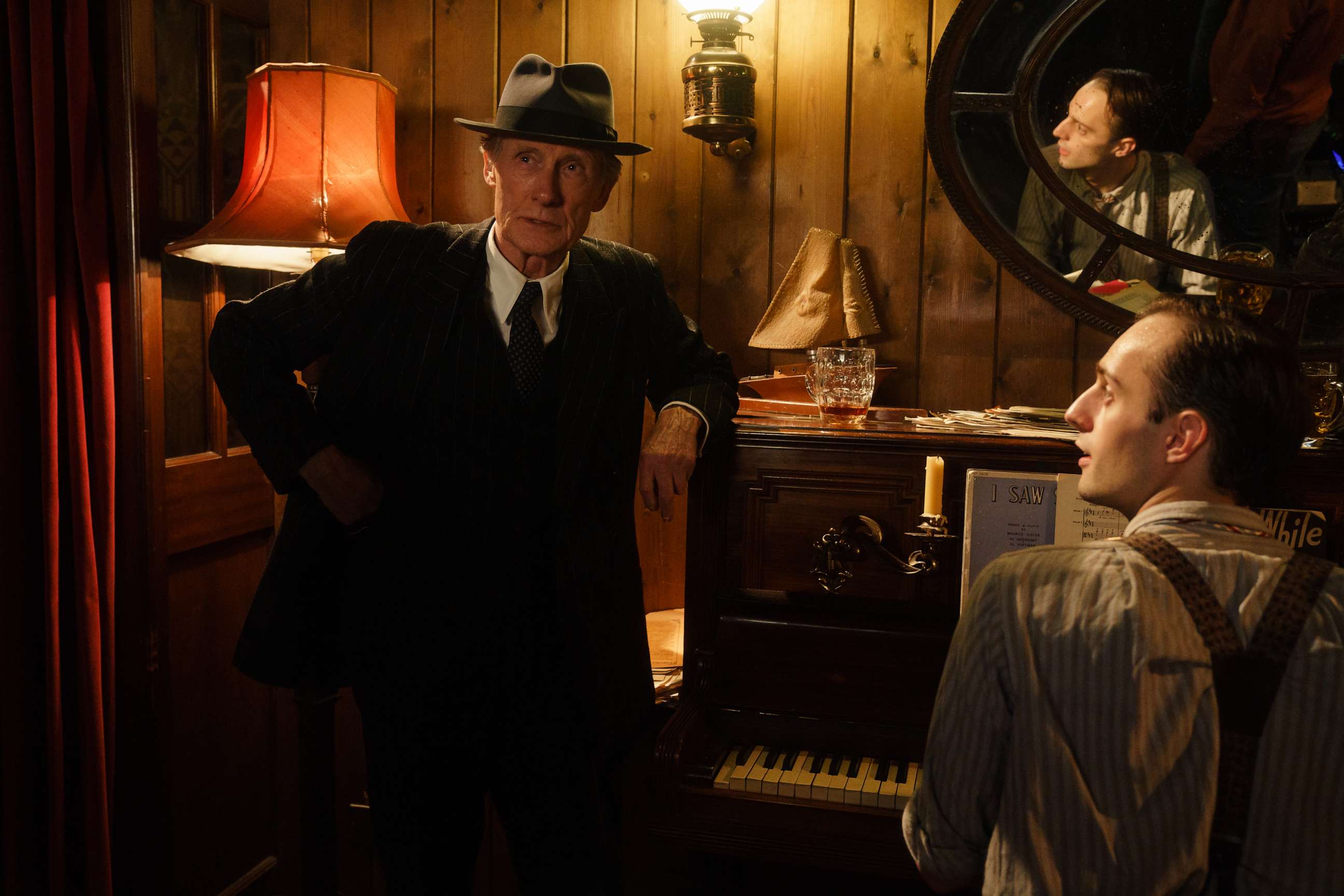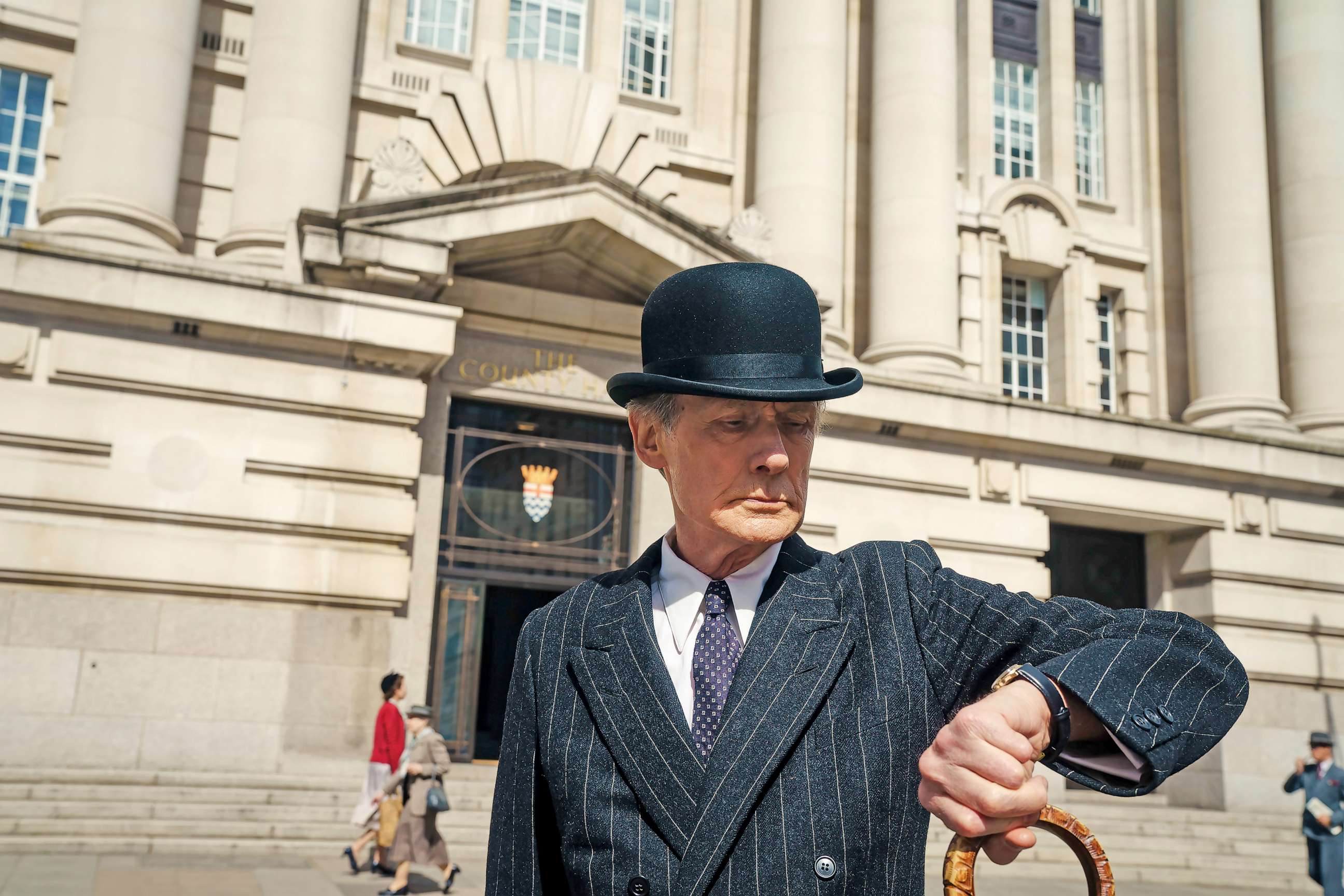Review: Bill Nighy delivers a master class in acting in 'Living'

Look out for "Living" at a theater near you. Yes, it's that good. Bill Nighy delivers a master class in acting as a repressed British civil servant nearing retirement who decides to seize the day before it's too late. Working in miniature to achieve major truths, "Living" is a deeply human drama that has the power to sneak up and floor you.
That's a remarkable feat for a film in which virtually nothing happens. Not until frosty Mr. Williams, Nighy's character, is diagnosed with a terminal illness.
Set in London in the early 1950s, "Living" establishes Mr. Williams as a man of rigid formality, supervising junior executives in the art of shuffling papers as a means of avoiding responsibility. Through the eyes of new employee Peter Wakeling (Alex Sharp), we see how even the simple task of building a small playground can strike this do-nothing crew as profoundly daunting.

Though Mr. Williams is a widower living in cold comfort with a son (Barney Fishwick) and daughter-in-law (Patsy Ferran), their relationship is so impersonal that he doesn't tell them of his medical death sentence.
Instead, he confides in Margaret (a spirited Aimee Lou Wood), a young woman who left the Williams office to pursue a career in restaurant management. Right now, she's waitressing.
Their relationship precipitates unwarranted gossip -- this is Mr. Williams after all -- but it's Margaret's zest for life that sparks this constrained man to change his office image as "Mr. Zombie" into something more alive, even in the smallest ways.
Nighy doesn't make a false move. Audiences probably remember this superb actor best in more flamboyant roles -- the aging, randy rock star in "Love Actually", or the vampire in "Underworld", or the villainous, tentacled Davy Jones in "Pirates of the Caribbean."
Fans of classic cinema will recall that "Living," directed with precision by Oliver Hermanus, is derived from "Ikiru," the 1952 landmark from Japanese master Akira Kurosawa. How appropriate that Kazuo Ishiguro, the Nagasaki-born, U.K.-raised Nobel Prize winner, has gifted his remake with a screenplay that honors both cultures while finding its own distinct identity.

Ishiguro is well known for "The Remains of the Day," the acclaimed novel that became a film starring Anthony Hopkins as a stoic English butler much like Mr. Williams in his devotion to a duty that choked out any chance for a personal life.
A sorrowful beauty infuses every frame of this remarkable film. Open yourself to the consummate artistry of Nighy. At 73, he just won the Best Actor prize from the not-easily-impressed Los Angeles Film Critics. Oscar, take note.Behold the way he traces the baby steps Mr. Williams takes to join the human race. His tenderness to Margaret, his pub singalong to "The Rowan Tree" in the company of a bohemian playwright (the excellent Tom Burke), and his vow to break a few precious company rules to build that pocket-sized playground.
Or simple, watch him. Just watch him sit on a swing in the snow humming with the pleasure of accomplishment. The act is revolutionary for a man who once only dreamed of taking his place on a train platform in the uniform of pinstriped suit and bowler hat that defines a gentleman. Or so he thought.
It's impossible not to be moved by the late awakening of Mr. Williams as he finds joy and purpose in what's left of living. In this heartbreaker of a movie, Nighy provides a lasting impression of acting at its finest. This you don't want to miss.




